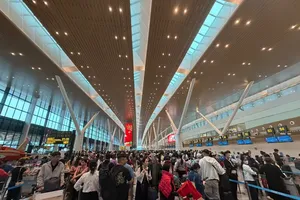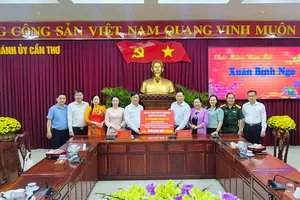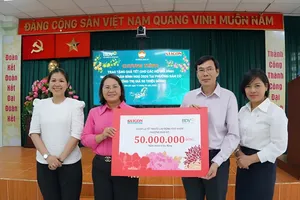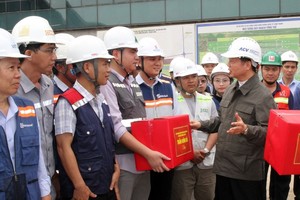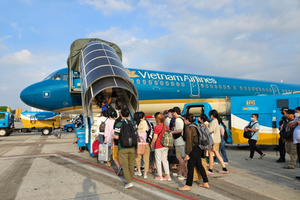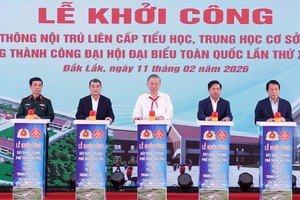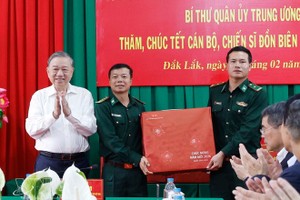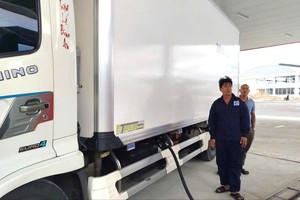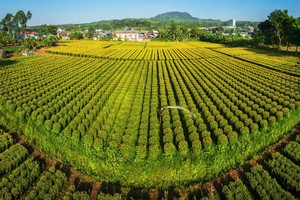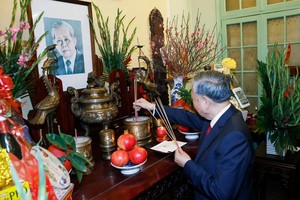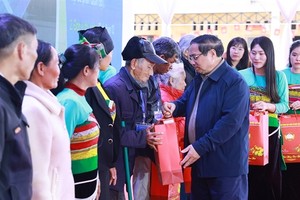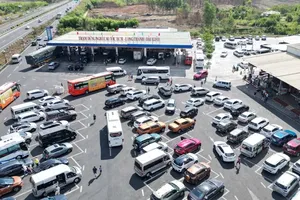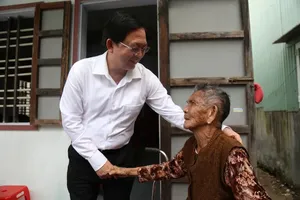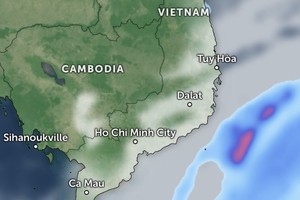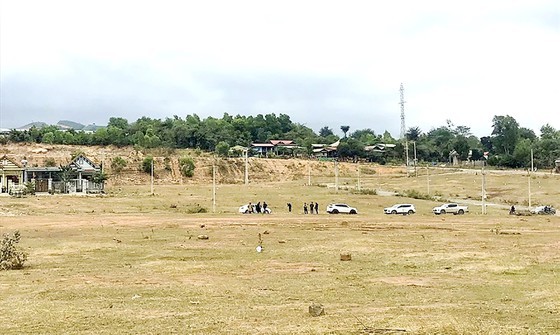
Ms. Ut from Thac Mo Ward of Phuoc Long Town in Binh Phuoc Province bitterly recalled that two years ago, a land fever suddenly developed in her neighborhood without any reason. Seeing people around discussing land transfer transactions worth billions of VND and earning large after large sums of money, she became restless and poured all her savings along with a bank loan to purchase three agricultural lots with a surface area of over 3,000m2 at a price of VND3 billion (US$131,000) in Da Kia Commune. Anything may happen, and when Binh Phuoc Province adopted stricter regulations on land lot division for sale, she cannot sell her lots to take back her capital. Now, with three lots at hand, she is struggling to pay huge monthly interest.
Her story is not at all strange in places where land fevers happen. 41-year-old Nguyen Huy Khue from Ho Chi Minh City spent over VND10 billion ($436,800) to buy three lots in Lai Hung Commune with the hope to earn a large profit when catching the news of a possible Lai Hung Airport construction project. This news turned out to be fake, and he is not able to sell his land to anyone, but still has to pay bank loan interest each month, which is an intolerable pressure to his family.
D.V.Q, a land broker in Phan Thiet City shared that even when the land fever disappears, land prices cannot reduce much because investors had to spend a great amount of money to purchase those lots, and now they still want to recover their capital.
Aware of the situation when land brokers purposely push up land prices to create land fevers for more profits, the local authorities in many places have stepped in.
Vice Chairman of Quang Binh Province People’s Committee Doan Ngoc Lam said that he had requested the local police to investigate suspicious individuals and organizations intentionally spreading fake news to cause such a dangerous fever, and handle them accordingly.
Meanwhile, the People’s Committees of all districts, towns, and cities in this province have been asked to post specific land prices for purchase and initial land prices for auction, to limit land fund division in auctions, which might cause temporary scarcity or fever.
Sadly, currently adopted solutions of localities seem not at all effective in controlling the situation.
In 2021, Ba Ria – Vung Tau Province introduced a regulation on conditions to divide or gather land lots depending on the minimum allowed surface area. After some time, in certain districts like Xuyen Moc, Chau Duc, or Phu My Town, land brokers dare to illegally divide lots and post information on social networks to attract potential investors.
Receiving reports from the local, functional agencies closed the roads in these lots and fine land owners VND45 million ($1,965). Further investigations revealed more law breaking activities in neighboring agricultural lots, where state agencies had approved lot division.
Dong Nai Province is planning to also introduce the minimum surface area for land lot division for each land type. In locations not within residential area planning, the People’s Committee of corresponding wards and districts forbid land purchase to eliminate possible land fever. However, when the regulation is not at hand, illegal construction or land division is still happening and has become increasingly complicated.
In related news, land prices in the outskirts of Hanoi have continued to witness a significant rise since the end of last year. Particularly, after the news about preferential mechanisms to accelerate the construction of Ring Road No.4, real estate broker offices appear day by day in the communes of Minh Tri, Minh Phu, Hien Ninh, Thanh Xuan of Soc Son District.
Land prices here have become unstable, doubling those of last year to reach an average of VND12-13 million ($524-568) per square meter. Land merchants have actively invested in land for perennial crops and rice fields at the price of VND1 million ($43.7) a square meter. After developing some roads, they divide their land into small lots to sell at the double price.
Similarly, after the official information on master planning of Bac Giang City until 2045 is published, land prices in the city and its neighboring Yen Dung District have fluctuated upwards by 30-50 percent to reach over VND30 million ($1,310) per square meter. Investors are now buying low-priced agricultural land lots to transform into residential ones for a much higher price.
Bac Ninh City is seeing the same situation after information about the districts of Thuan Thanh, Yen Phong, Que Vo being upgraded to a town so that Bac Ninh City can become a municipality. Land prices here have increased by 50 percent compared to the time before Tet holiday.





